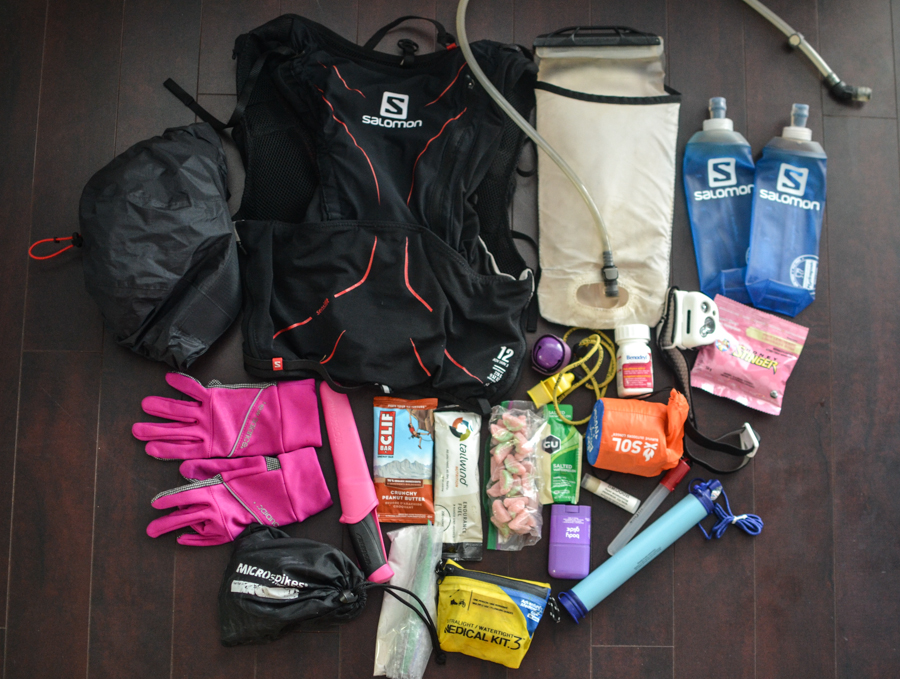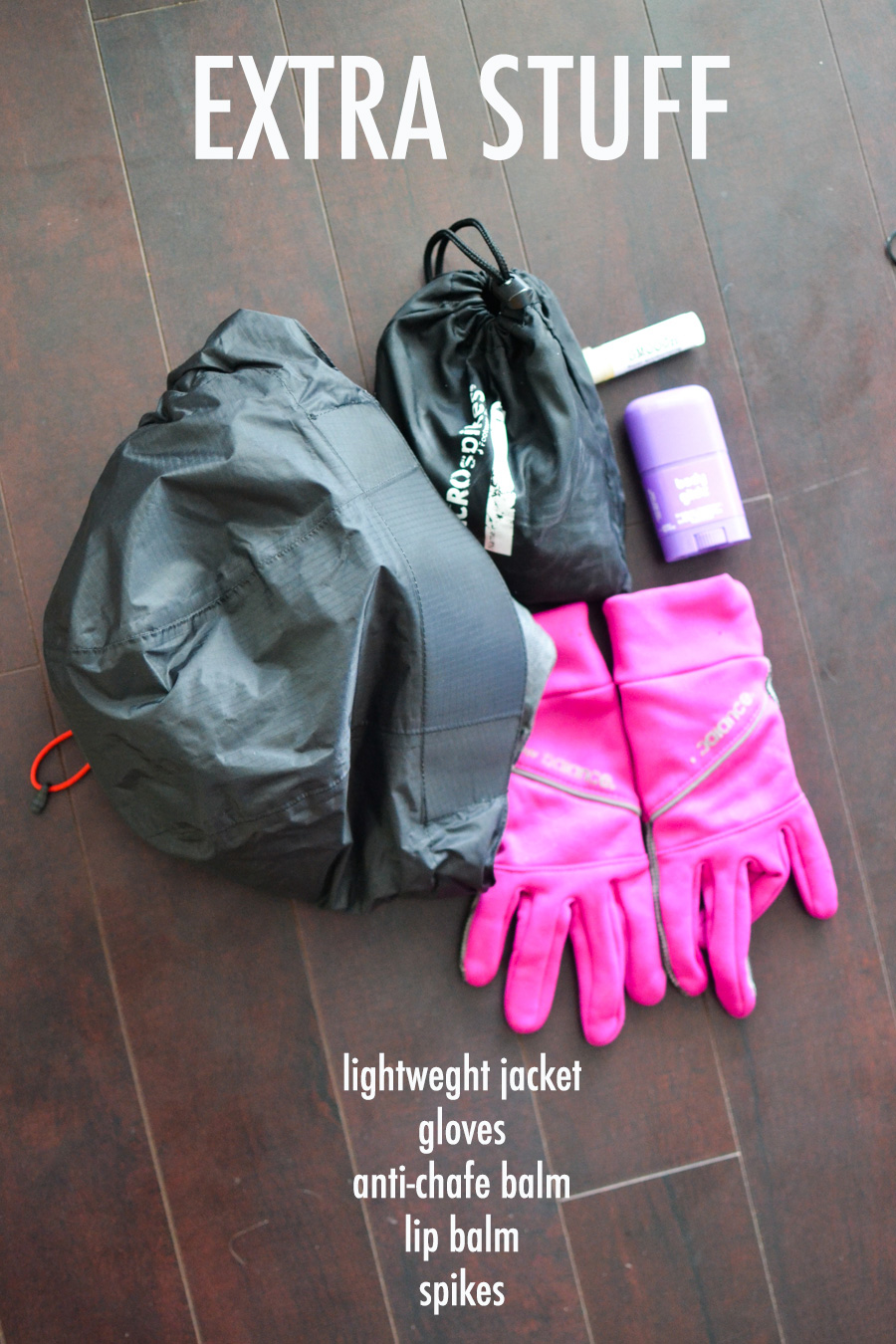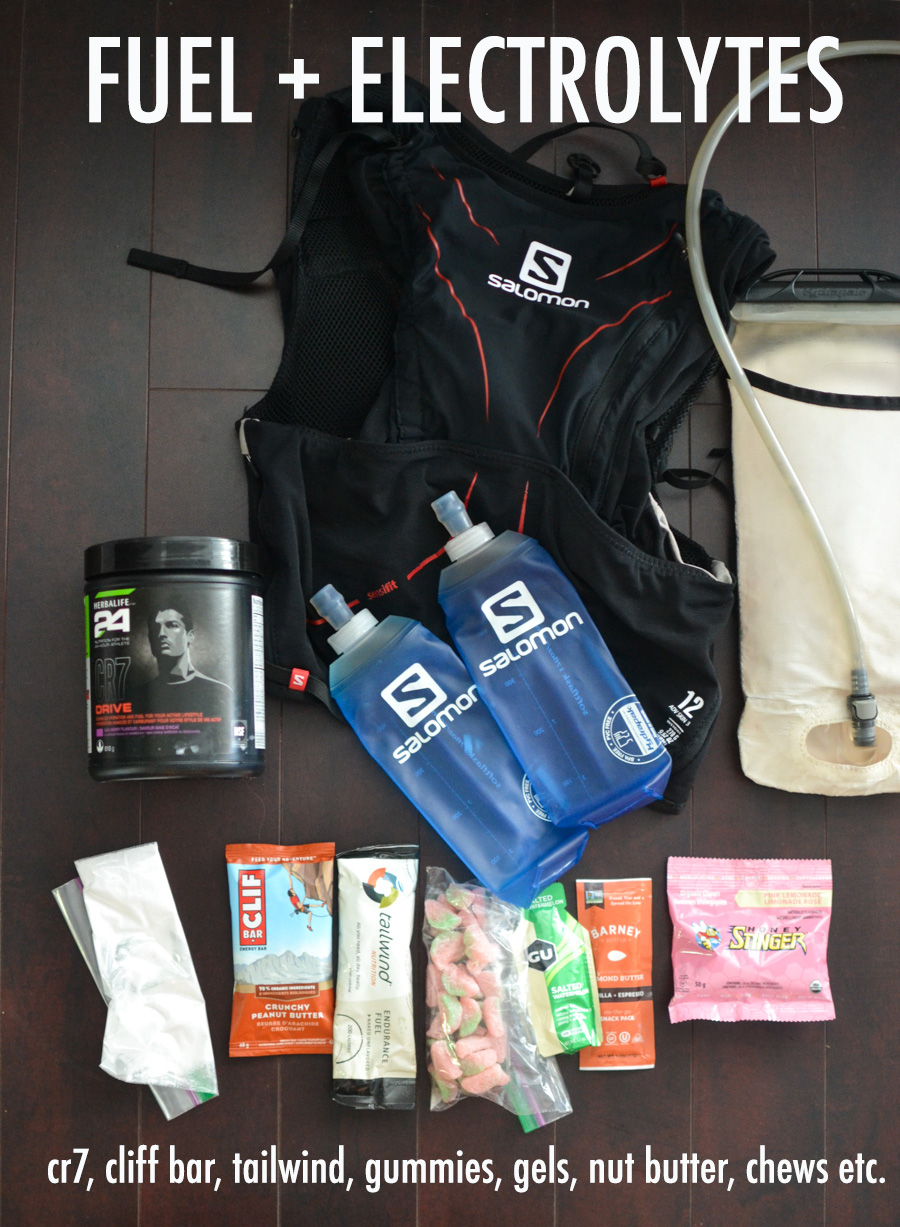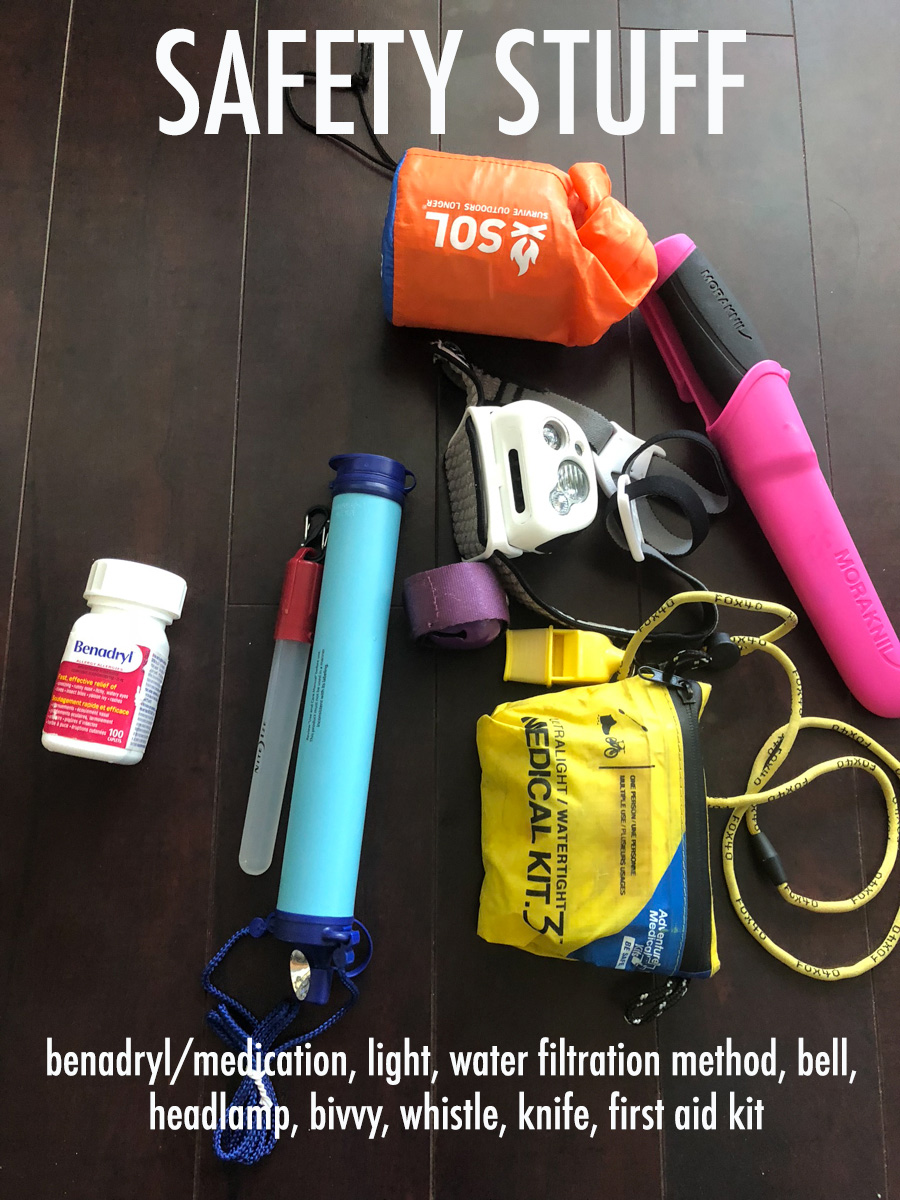Packing for a Trail Run: The Essentials
Planning a long trail run can be nearly as exciting as the run itself! Where are you going? How long are you going to be going for? These are some questions that you should be asking yourself when deciding on what to bring with you on your run.
For us, we believe the bare essentials are:
A hydration pack with water
Extra water bottles
Phone (in a case or plastic bag to keep it dry)
Fuel + electrolytes
Mini first aid kit (store bought or homemade)
An extra layer (bivvy or emergency blanket, often mandatory for many races)
Other items to consider taking (depending on your distance and terrain):
Hat or buff
Sunglasses
Sunscreen
Tissues
Lightweight waterproof jacket
Blister repair kit
Anti-chafe product
Lightweight, folding poles (for long, technical runs)
An extra warm layer
A headlamp
A change of socks (in a ziploc bag to keep them dry)
More food and water
Satellite GPS communication device (Spot or InReach for example)
Ideally, everyone would always pack at least the 10 essentials (see Winter Running blog for details), as these are the top items required for safety and emergency preparedness on the trails. Race day items will differ from your adventure days, as you should know where there will be support through aid stations.
There are a few additional questions you can ask yourself to help determine which items you may want to carry, which include:
1. Will I have cell phone reception where I am going? If not, you may want to ensure you have maps, a picture of the area on your phone, and a satellite GPS communication device.
2. How familiar are you with this route and do you anticipate running into other people? How remote and how familiar you are with your trail(s) of choice makes a big difference in planning your route in advance. Taking the tools you may need with you in order to navigate yourself is essential (compass skills should not be overlooked)!
3. What might make an unexpectedly slow or long run more comfortable? Think of asking, in the case someone sprains an ankle or has to walk and the run becomes much longer than anticipated, what will make me most comfortable. It might be that emergency blanket or warm layer for warmth, dry gloves or socks, or an extra snack.
We also pack cookies from time to time. They make everything better :)




